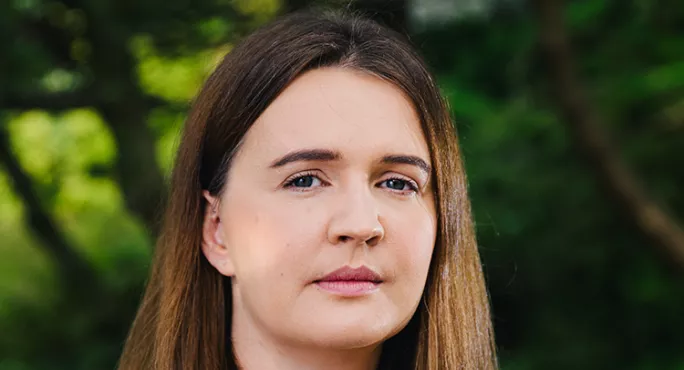- Home
- ‘The day I urged a bike thief to change his life and consider college’
‘The day I urged a bike thief to change his life and consider college’

I thought I had the weekend planned out well. Some quiet time at home after my first week at my new job, and finishing an essay for university. That all went out the window on Saturday evening when my 16-year-old son phoned me, deeply distressed that the lock on his brand new bike had been cut and his bike stolen, in the 10 minutes that it took him to get an ice cream with his friends.
Having dispatched my husband to go into Glasgow city centre and bring him home, I turned to social media, initially to vent my frustration and then, thinking more strategically, to share details of the bike on as many selling groups and sites as I could access. Knowing that the brand of the bike wasn’t very common, I wanted to ensure that I’d done everything I could to track it down but in all honesty I wasn’t expecting that we would ever see it again. I sent one son, absolutely devastated, off to bed.
I’ve talked in the past about my own challenges in the labour market prior to returning to education, but suffice to say we’re not a family that has been able to have big special purchases very often. Findlay had saved up for quite some time to buy this bike, topped up with money from his recent birthday. I was sure that we were not going to be in a financial position to replace it, and the excess on our insurance made claiming almost pointless.
‘I need to talk to you’
On Sunday I woke to a message from someone who had noticed that the bike had now been advertised on a selling platform. That very kind stranger continued messaging the seller in order to arrange to meet and view the bike, and at 7.30pm - 22 hours after the bike had been stolen - I had the bike in my hands.
What followed has been widely covered over the past day or so; indeed, you may have seen or heard coverage yourself. Secure in the knowledge that I had the bike, and confident that the young boy who met my husband and I was alone, I felt a sudden burst of frustration. This boy seemed to be around the same age as my son, and here he was making terrible life decisions which were unlikely to lead anywhere positive. “Come over here a minute,” I said to the now sobbing teen. “I need to talk to you about what you’re doing.”
In my previous guise as an NUS Scotland officer, I spent three years pushing an agenda of better access and participation in post-16 pathways for young people who have consistently been displaced from these opportunities. I fundamentally believe that meritocracy is a myth and that there are a myriad of barriers which stand between young people and positive destinations but that colleges and quality apprenticeships are instrumental in tackling that inequality. I believe that education is a public and social good, and that colleges punch above their weight in redistributing social capital by consistently bringing those most distanced from the labour market into education opportunities which otherwise would not exist.
‘College was life-changing for me’
And so in that moment I was standing in an area ranked by the Scottish Index of Multiple Deprivation as decile 1- one of the most deprived 10 per cent of areas by pretty much every measure going. I looked at this young boy on the precipice of adulthood, and I asked him to consider what he was doing. To think about his future, and about where the decisions he was making were likely to take him. I shared with him that school had been difficult for me, but that college had been a life-changing experience for me and had given me the tools and skills to get involved in work that really made me feel happy and fulfilled. I told him that school might not be working for him but that college or an apprenticeship might be right for him, and I urged him to reflect upon where this path would take him.
My former colleague Shakira Martin, who is now the president of the National Union of Students, has spoken candidly about her past, and it was Shakira who made me think about skills in an entirely different capacity. She reflected recently that the skills required working as a courier for a drug dealer - data protection, client confidentiality, customer service - were transferable business skills. And to be flippant, this kid had also demonstrated transferable skills in the process of obtaining and attempting to sell on this bike!
The really interesting thing about this whole saga, for me, is that it has started a conversation about the way in which I approached it, and I have to say that I have been pleasantly surprised with the compassion and consideration shown on social media where our story has been discussed. The simple facts remain that there is no better antidote to social inequality than skills and education, and I sincerely hope that this young boy makes new plans for his education journey.
Vonnie Sandlan is a former NUS Scotland president and now senior policy officer at Colleges Scotland . She can be found tweeting @VonnSand
Want to keep up with the latest education news and opinion? Follow Tes on Twitter and like Tes on Facebook
Keep reading for just £1 per month
You've reached your limit of free articles this month. Subscribe for £1 per month for three months and get:
- Unlimited access to all Tes magazine content
- Exclusive subscriber-only stories
- Award-winning email newsletters



